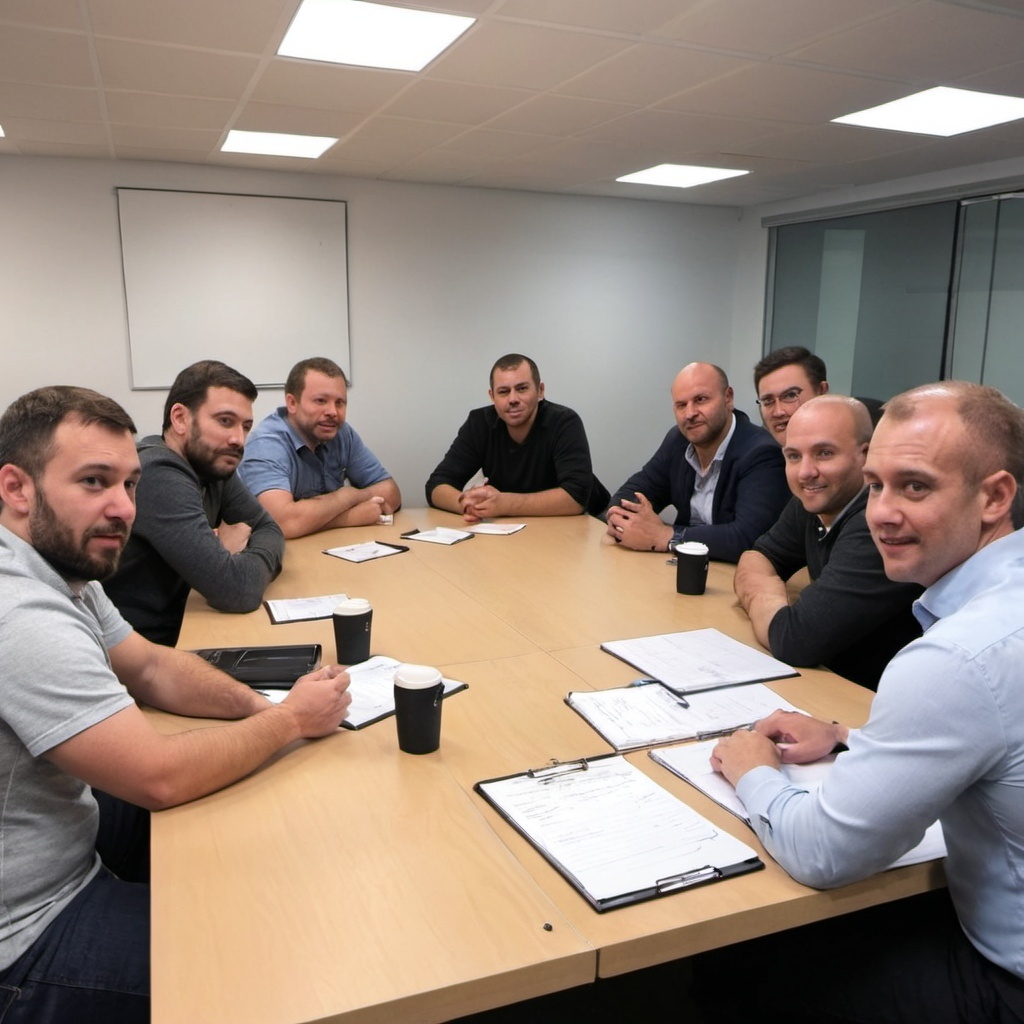C# (pronounced “C sharp”) is a versatile, object-oriented programming language developed by Microsoft as part of the .NET initiative. It was first released in 2000 and has since evolved into a powerful language for building a wide range of applications, including web, desktop, mobile, cloud, and gaming. C# is designed to be simple, modern, and type-safe, making it a popular choice for developers. Its syntax is similar to other C-style languages like C++ and Java, which allows developers to transition easily between these languages. Over the years, C# has gained significant traction due to its robust features, strong community support, and seamless integration with the .NET ecosystem.
One of the standout features of C# is its support for multiple programming paradigms, including object-oriented, functional, and component-oriented programming. This flexibility enables developers to write clean, maintainable, and scalable code. C# also includes advanced features like LINQ (Language Integrated Query) for querying data, asynchronous programming with async and await, and pattern matching for more expressive code. Additionally, C# is constantly updated with modern features, such as records, nullable reference types, and file-scoped namespaces, ensuring it remains relevant in today’s fast-paced development landscape. Its strong typing system and runtime checks help prevent common programming errors, making it a reliable choice for enterprise-level applications.
C# is widely used in various domains, from web development with ASP.NET to game development with Unity. Its integration with Visual Studio, one of the most popular integrated development environments (IDEs), provides developers with powerful tools for debugging, testing, and deploying applications. The language’s cross-platform capabilities, enabled by .NET Core and later .NET 5+, allow developers to build applications that run on Windows, macOS, and Linux. With its rich standard library, extensive third-party libraries, and active community, C# continues to be a top choice for developers seeking a language that combines performance, productivity, and versatility. Whether you’re building a small utility or a large-scale enterprise system, C# offers the tools and features to bring your ideas to life.
Here’s a curated list of 50 C# technical interview questions with concise, original answers for 2023/2024 interviews:
- What is C#?
A modern, object-oriented, type-safe programming language developed by Microsoft, part of the .NET ecosystem. - Managed vs. Unmanaged Code?
Managed code runs under the CLR (automatic memory management), while unmanaged code (e.g., C++ DLLs) runs outside the CLR. - Boxing and Unboxing?
Boxing converts a value type to an object (e.g., int to object). Unboxing reverses this, requiring explicit casting. - Value vs. Reference Types?
Value types (e.g., int, struct) store data directly on the stack. Reference types (e.g., class, string) store memory addresses on the stack pointing to heap data. - What is the CLR?
Common Language Runtime: Executes .NET code, handles memory management, JIT compilation, and exception handling.

- Four OOP Pillars?
Encapsulation, Inheritance, Polymorphism, Abstraction. - Abstract Class?
A class marked abstract that cannot be instantiated. It may contain abstract methods (no implementation) for derived classes to override. - Interface?
A contract defining methods/properties that implementing classes must define. No implementation until C# 8.0’s default interface methods. - Abstract Class vs. Interface?
Abstract classes support partial implementation and fields; interfaces define contracts (no fields pre-C# 8). A class can implement multiple interfaces but inherit only one class. - Polymorphism?
Ability of objects to take multiple forms. Achieved via method overriding (inheritance) or interfaces. - Exception Handling Keywords?
try, catch, finally, throw. throw ex resets the stack trace; throw preserves it. - Finally Block Purpose?
Executes code regardless of exceptions, often used for cleanup (e.g., closing files). - Delegate?
A type-safe function pointer. Example: Action, Func, or custom delegate void MyDelegate(int x);. - Event?
A special delegate with event keyword, enabling publisher-subscriber patterns while encapsulating invocation. - Delegate vs. Event?
Events restrict external classes from invoking or overriding the delegate; only the publisher can raise the event. - async/await?
Keywords for asynchronous programming. await pauses method execution until the task completes without blocking the thread. - Task.Run vs. async/await?
Task.Run offloads work to a thread-pool thread. async/await enables non-blocking waits without additional threads for I/O-bound work. - LINQ?
Language Integrated Query: Syntax for querying collections (e.g., from x in list where x > 5 select x). - Garbage Collection (GC)?
CLR’s automatic memory management. Reclaims unused objects from the heap (generations 0, 1, 2). - using Statement?
Ensures Dispose() is called on IDisposable objects (e.g., file streams) even if an exception occurs. - Extension Methods?
Static methods in static classes that appear as instance methods (e.g., public static string Reverse(this string s)). - Nullable Value Types?
Declared with ? (e.g., int? x = null). Uses System.Nullable<T> struct. - Anonymous Types?
Immutable types created with new { Name = “John”, Age = 30 }. Used in LINQ for temporary data shaping. - Covariance/Contravariance?
Covariance: Enables using a more derived type (e.g., IEnumerable<Cat> as IEnumerable<Animal>). Contravariance allows more generic parameters (e.g., Action<Animal> as Action<Cat>). - Thread Pool?
Managed pool of worker threads for parallel tasks. Accessed via ThreadPool.QueueUserWorkItem or Task.Run. - Lock vs. Monitor?
lock (obj) { } is syntactic sugar for Monitor.Enter(obj) and Monitor.Exit(obj). Monitor allows finer control with Wait()/Pulse(). - Singleton Implementation?
public sealed class Singleton {
private static readonly Lazy<Singleton> _instance = new Lazy<Singleton>(() => new Singleton());
private Singleton() { }
public static Singleton Instance => _instance.Value;
}

- Record Type?
Immutable reference types with value-based equality. Defined as public record Person(string Name, int Age);. - var vs. dynamic?
var is compile-time type inference. dynamic bypasses compile-time type checking (resolved at runtime). - ref vs. out Parameters?
Both pass by reference. out requires assignment in the method; ref expects initialized variables. - const vs. readonly?
const is compile-time constant. readonly can be set at runtime (e.g., in constructors). - Partial Class?
Splits a class definition across files (e.g., UI code and logic). Common in WinForms or WPF. - Sealed Class?
Prevents inheritance. Used for security or design reasons (e.g., String is sealed). - async void?
Avoid except in event handlers. Unhandled exceptions in async void methods crash the app. - Volatile Keyword?
Ensures a field’s value is always read/written directly from memory (prevents CPU caching in multi-threaded code). - nameof Operator?
Returns the name of a variable/type as a string. Avoids magic strings: nameof(MyProperty) → “MyProperty”. - Expression-Bodied Members?
Concise syntax for methods/properties: public int Sum(int a, int b) => a + b;. - IEnumerable vs. IQueryable?
IEnumerable executes queries in-memory (LINQ to Objects). IQueryable builds expression trees for remote execution (e.g., SQL via LINQ to Entities). - yield Keyword?
Enables custom iteration with deferred execution. Example:
public IEnumerable<int> GetNumbers() {
for (int i = 0; i < 10; i++) yield return i;
}
- Stack vs. Heap?
Value types (and pointers) go on the stack (fast, short-lived). Objects go on the heap (managed by GC). - Optional Parameters?
Default values for method parameters: public void Log(string message, bool isError = false). - Method Overriding vs. Hiding?
Overriding uses override to change base class behavior. Hiding uses new to create a separate method in the derived class. - Deadlock Prevention?
Avoid nested locks, use timeouts (Monitor.TryEnter), or enforce consistent lock order. - String vs. StringBuilder?
String is immutable; concatenation creates new objects. StringBuilder is mutable and efficient for frequent changes. - Dispose() vs. Finalize()?
Dispose() releases unmanaged resources explicitly (via IDisposable). Finalize() (destructor) is called by GC for cleanup if Dispose() wasn’t.

- Pattern Matching?
C# 7+ feature: if (obj is int x) { … } or switch with type patterns. - Global Using Directives?
C# 10 allows global using System; in one file, applying to the entire project. - File-Scoped Namespaces?
C# 10: namespace MyApp; applies to the entire file, reducing indentation. - Nullable Reference Types?
Opt-in feature (<Nullable>enable</Nullable>) to flag nulls at compile time: string? nullableString = null;. - Dependency Injection in C#?
Built-in via IServiceCollection in .NET Core. Constructor injection promotes testable, decoupled code.
So there you have it – Here are the top 50 csharp questions. Apart from these you need to be very well prepared with practical examples if asked. Also, articulation & proper explanation on you program code flow and logic is of utmost importance. Good Luck!
Curated Reads:




